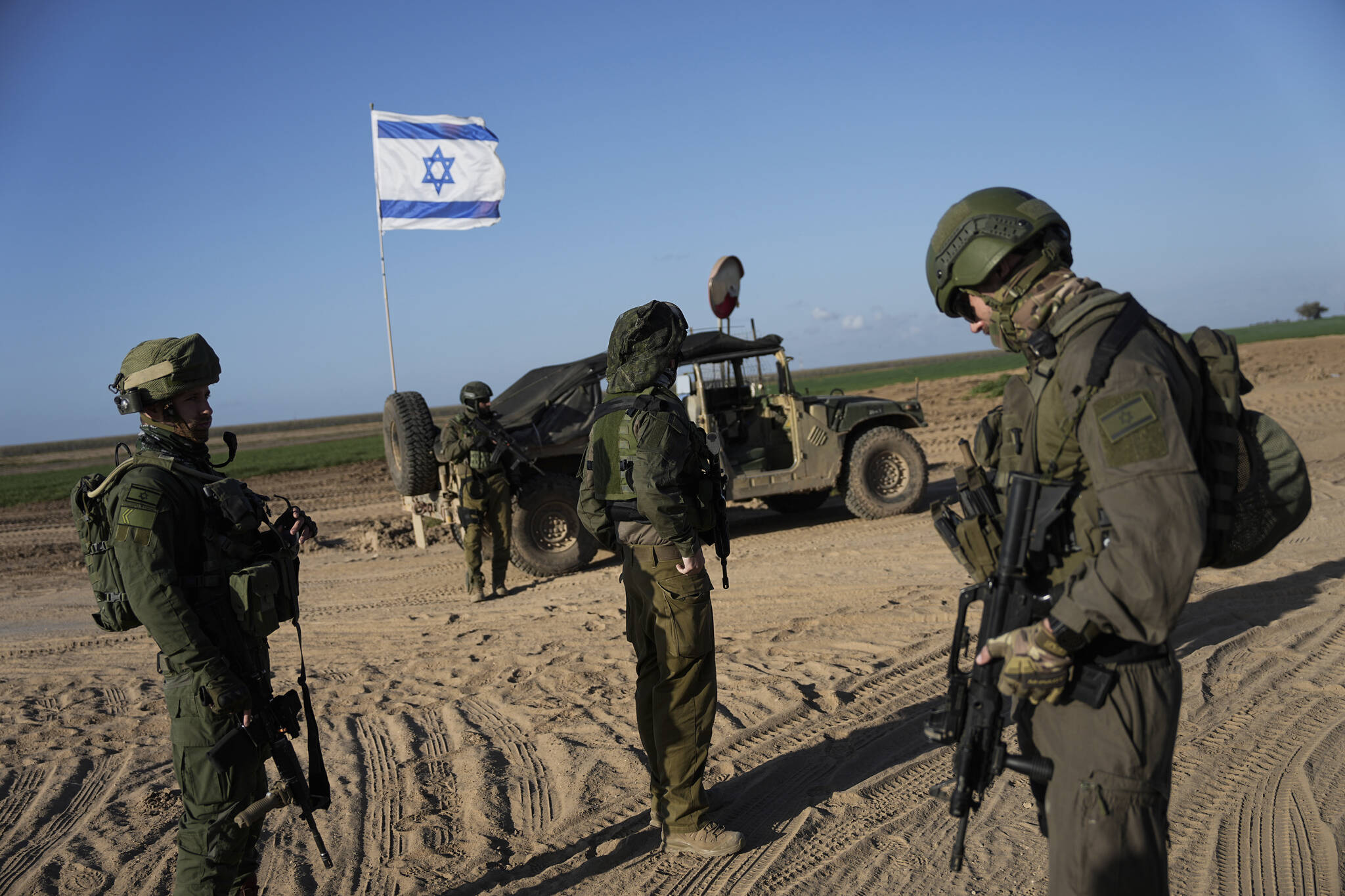Dixie Belcher’s article titled “Palestinian residents are helpless victim in attacks made by leaders” published in the Juneau Empire on Feb. 26, 2024, is a perfect example of how historic events and factual truth could be misconstrued by an amateur historian, claiming to be an expert in the world peace movement. Not only Belcher misconstrued the reality of the Israel/Gaza conflict, she also managed to convolute the statistical data and historic events related to this subject.
Let me present several examples from the Belcher’s article: “Gazans have the highest level of education of any other group in the world and the lowest level of illiteracy.” Really? Where this data came from? Indeed, from the kindergarten on Gazans teach their children to hate and, eventually, to exterminate their nearest neighbor — Israel and all Jews worldwide. How can anyone negotiate a peaceful solution with this type of hateful ideology?
Here is another “beauty” from Belcher’s article: “Frustrated with the Palestinian Authority, in 2006 they [Gazans] voted in Hamas, hoping for change.” Indeed, Palestinians voted the terrorist organization, Hamas, to govern Gaza. In fact, the entire Belcher’s article is full of false assertions and a complete lack of understanding of the Middle Eastern and Jewish history.
Belcher is not alone in her bias and uneducated assertions on this subject. The far-left media notoriously make various historical and statistical errors that lead the public to a divisive conclusion on Israel-Gaza/Hamas wars. The arguments are: (1) Unjust creation of Israel in 1948 provoked conflicts in the Middle East; (2) Israel response to Gaza’s attack on Oct. 7, 2023, is excessive and disproportionate.
Creation of modern-day Israel
The Arab-Israel conflict in the Middle East is centuries old. The conflict over land is particularly perplexing. Before the time of Christ, the Jewish people lived in their own kingdom; a Jewish-ruled state was located where Israel is today. In 586 B.C., however, the Babylonian Empire defeated Israel. As a result of it, many Jews were brought to Babylonian as slaves. Returning to their homeland after years of captivity, the Jewish people constructed a new state, only to be incorporated into the Roman Empire. Then, in 70 A.D., the Romans destroyed the Temple in Jerusalem, and the Jewish people scattered throughout the Roman Empire and beyond. From this time until 1948, Jews had no state.
During the intervening centuries prior to 1948, Palestinian Arabs and the Islamic religion predominated in the territory where Israel had been. The Palestinians, like the Jews, claimed the territory as their own. Thus, at one time or another, Palestinian Arabs and Jews both owned the land at the eastern end of the Mediterranean. This leads to a question, “Whose land is it?” Unfortunately, there is no simple, universally accepted answer.
In 1948, the United Nations proposed that Palestine be partitioned, with Jewish state being created along the Mediterranean coast and Palestinian state inland. It was not a perfect solution, and few people, least of all the Arabs, were pleased with it. But, at least, it was a solution, and both superpowers, the United States and the Soviet Union, were behind it.
Israel-Gaza/Hamas war
Far-left media and activists accuse Israel of excessive and disproportionate use of force against Gaza/Hamas in defending itself in today’s war initiated by Gaza. Historically, there have never been proportionate wars. None.
On Dec. 7, 1941, Japan launched a surprise aerial attack on the U.S. naval base at Pearl Harbor, Hawaii. The attack killed 2,403 U.S. personnel, including 68 civilians, and destroyed or damaged 19 U.S. Navy ships, including eight battleships.
In response, on Aug. 6 and Aug. 9, 1945, the United States detonated two atomic bombs over the Japanese cities of Hiroshima and Nagasaki. The bombings killed between 129,000 and 226,000 Japanese respectively, most of whom were civilians, and remain the only use of nuclear weapons in an armed conflict.
The allied bombing of Germany from 1942-1945 almost completely ruined several major cities (Dresden, Berlin, Cologne), in bombing essential infrastructure and, in the process, killing thousands of civilians. Nearly 27 million Soviets were killed during the war, including some of my relatives in Kiev, compared to nearly 9 million civilian and military Germans deaths by allied forces during the war.
On the 9/11, 2001, the Arab terrorists cowardly attacked and killed 2,977 people and injured thousands at the World Trade Center in New York, the Pentagon in Washington D.C., and in Somerset County, Pennsylvania. In response, the United States and its allies invaded two countries — Iraq and Afghanistan — and, in the process, disproportionately killed and wounded tens of thousands of civilians and military personnel.
The causes of the Oct. 7, 2023, heinous Gaza’s attack of Israel are deeply rooted in multi-faceted historic, religious and ethnic issues of global terrorism. Historically, terrorism has always been a complex problem for humanity and for peace-seeking nations. Only united we will win against anti-Semitism and the world terrorism.
• Alexander B. Dolitsky is a Juneau resident who was born and raised in Kiev in the former Soviet Union, and a longtime researcher and author about Russian topics. He published a “Soviet Life” column for the Juneau Empire during the 1980s.

